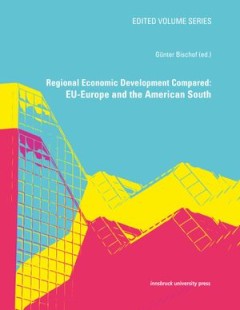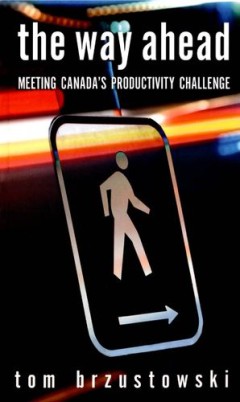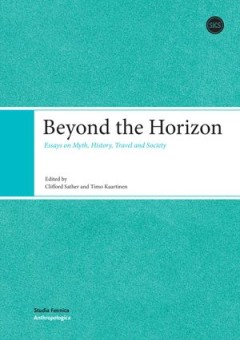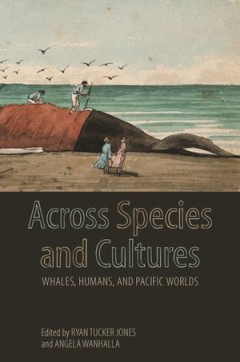Filter by

Transformative Communication Technologies
This booklet documents the 36th Boehm-Bawerk Lecture, presented by Prof. Robin Mansell on October 31, 2017 as a ceremonial opening ceremony for the Institute of Media, Society and Communication at the Faculty of Social and Political Sciences
- Edition
- -
- ISBN/ISSN
- 9783903187146
- Collation
- -
- Series Title
- -
- Call Number
- 650

Regional Economic Development Compared
Comparing economic development in a regional context both in the South of the United States and in the European Union today raises many fascinating questions. How much money in the form of tax credits and subsidies should communities and states invest to attract foreign investors in the U.S.? Should individual states and communities in the U.S. commit public funds in the form of tax money and t…
- Edition
- -
- ISBN/ISSN
- 9783902936424
- Collation
- -
- Series Title
- -
- Call Number
- 650

... A Right Good People
A collection of true stories gathered from the Southern Appalachian people, this book echoes the folkways and values of another era. Published in 1974, the stories collected in "... A Right Good People" were originally published in the Charlotte Observer, the largest newspaper in the Carolinas in the 1970s. These stories were written with the intention of illustrating the heritage of the Appala…
- Edition
- -
- ISBN/ISSN
- 9781469638362
- Collation
- -
- Series Title
- -
- Call Number
- 390 WAR r

The Way Ahead
Canada is a prosperous country, but this prosperity is being stressed by demographics, pressures on the public purse, and low productivity growth. To maintain the nation's high quality of life, prosperity must increase while remaining sustainable. Combining Tom Brzustowski's extensive knowledge of government, industry, and academia, The Way Ahead, articulates a strategy for moving the Canadian …
- Edition
- -
- ISBN/ISSN
- 9780776606699
- Collation
- -
- Series Title
- -
- Call Number
- 650

Continued Violence and Troublesome Pasts: Post-War Europe Between The Victors…
In most European countries, the horrific legacy of 1939–45 has made it quite difficult to remember the war with much glory. Despite the Anglo-American memory narrative of saving democracy from totalitarianism and the Soviet epic of the Great Patriotic War, the fundamental experience of war for so many Europeans was that of immense personal losses and often meaningless hardships. The anthology…
- Edition
- -
- ISBN/ISSN
- 9789522228574
- Collation
- -
- Series Title
- -
- Call Number
- 909.81

Beyond the Horizon
Society is never just a localized aggregate of people but exists by virtue of its members’ narrative and conceptual awareness of other times and places. In Jukka Siikala’s work this idea evolves into a broad ethnographic and theoretical interest in worlds beyond the horizon, in the double sense of “past” and “abroad.” This book is a tribute to Jukka’s contributions to anthropology…
- Edition
- -
- ISBN/ISSN
- 9789518580709
- Collation
- -
- Series Title
- -
- Call Number
- 301 SAT b

Western Arabia in the Leiden Collections. Traces of a Colourful Past
"In the late nineteenth and early twentieth century Dutch diplomats, scholars and travellers assembled unique collections in Jeddah, Mecca and Medina. The Dutch presence in Arabia, where they established a consulate in Jeddah, was intimately connected with the supervision of the annual pilgrimage to Mecca from the Netherlands East Indies, present-day Indonesia. Notable guests at this consulate …
- Edition
- -
- ISBN/ISSN
- 9789087282592
- Collation
- -
- Series Title
- -
- Call Number
- 297 MOL w

Nostalgia for the Present
Anthropology and photography have been linked since the nineteenth century, but their relationship has never been entirely comfortable—and has grown less so in recent years. Nostalgia for the Present aims to repair that relationship by involving intentional participants in an inclusive conversation; it is the fruit of a collaboration among an ethnographer, a photographer, a group of Moroccan …
- Edition
- -
- ISBN/ISSN
- 9789087282110
- Collation
- -
- Series Title
- -
- Call Number
- 770 DES n

Mana Māori. The Power of New Zealand’s First Inhabitants
This book takes you on a journey exploring the histories of the country's first Polynesian discoverers, its encounters with Europeans and the subsequent settling by Westerners. Particular attention will be paid to the Dutch explorer Abel Tasman and the Dutch immigration wave of the 1950s. Through a discussion of the meeting house and meeting grounds, the relationships Maori maintain to the land…
- Edition
- -
- ISBN/ISSN
- 9789087280833
- Collation
- -
- Series Title
- -
- Call Number
- 301 VEY m

Across Species and Cultures (EPUB): Whales, Humans, and Pacific Worlds
More than any other locale, the Pacific Ocean has been the meeting place between humans and whales. From Indigenous Pacific peoples who built lives and cosmologies around whales, to Euro-American whalers who descended upon the Pacific during the nineteenth century, and to the new forms of human-cetacean partnerships that have emerged from the late twentieth century, the relationship between the…
- Edition
- -
- ISBN/ISSN
- 9780824892142
- Collation
- -
- Series Title
- -
- Call Number
- 300
 Computer Science, Information & General Works
Computer Science, Information & General Works  Philosophy & Psychology
Philosophy & Psychology  Religion
Religion  Social Sciences
Social Sciences  Language
Language  Pure Science
Pure Science  Applied Sciences
Applied Sciences  Art & Recreation
Art & Recreation  Literature
Literature  History & Geography
History & Geography